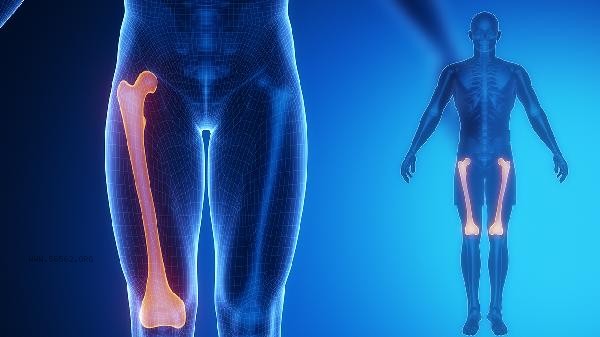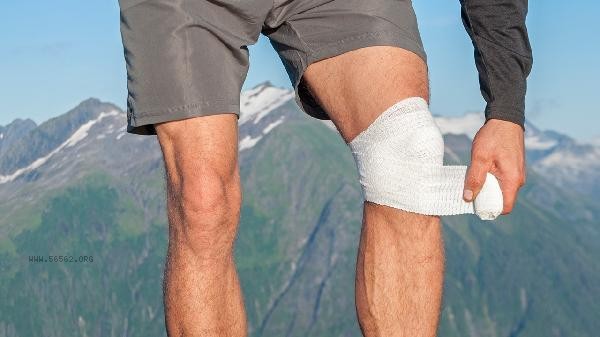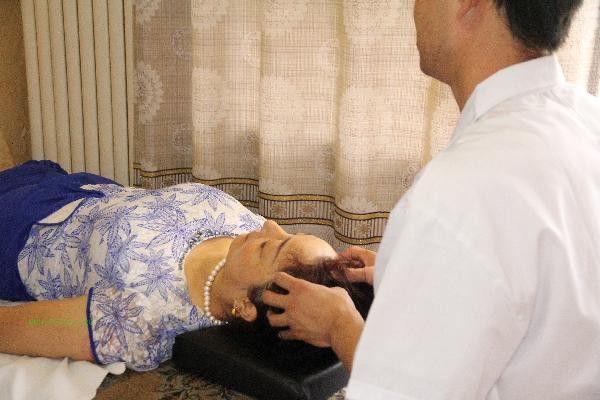The symptoms of blocked meridians in the lower limbs mainly include numbness, pain, soreness, weakness, abnormal skin temperature, and restricted movement. The blockage of lower limb meridians may be related to the invasion of cold and dampness, insufficiency of qi and blood, traumatic blood stasis, lumbar spondylopathy, diabetes peripheral neuropathy and other factors.

1. Lower limb numbness
When the meridians of the lower limbs are blocked, the circulation of qi and blood is obstructed, and the nerve conduction function is affected, which can easily lead to symptoms of lower limb numbness. Numbness may manifest as a decrease or complete loss of local skin sensation, often gradually developing upwards from the feet. The numbness caused by long-term blockage of the meridians may be accompanied by muscle atrophy. Hot compress or massage can be carried out daily to promote blood circulation. In serious cases, medical treatment is required to check the lumbar intervertebral disc herniation, diabetes peripheral neuropathy and other diseases.
2. Pain
Pain caused by blocked meridians is often dull or stabbing, which worsens during walking and subsides after rest. The pain is mostly concentrated in the knee joint, calf, or ankle, and may be accompanied by local tenderness. Cold weather or nighttime pain may worsen, which is believed to be related to cold coagulation and blood stasis in traditional Chinese medicine. According to medical advice, blood activating and stasis removing drugs such as Xuefu Zhuyu Capsules and Shujin Huoxue Tablets can be used in combination with local moxibustion treatment.
3. Acid swelling and weakness
Lower limb meridian obstruction can lead to insufficient blood supply to muscle tissue, accumulation of metabolic products, manifested as heavy acid swelling, fatigue, and easy fatigue in the lower limbs. Symptoms are obvious after standing or walking for a long time, which may be accompanied by calf muscle spasms. This condition is common in venous reflux disorders or chronic strain injuries. It is recommended to elevate the lower limbs to promote blood reflux and supplement with appropriate amounts of nutritional and neurological drugs such as vitamin B1 tablets and mecobalamin tablets.
4. Abnormal skin temperature
Meridian blockage may cause abnormal skin temperature in the lower limbs, manifested as local coldness or burning sensation. Coldness is often caused by insufficient yang energy and obstruction of cold pathogenic factors, resulting in pale or purplish skin; The burning sensation may be related to damp heat and blood stasis, and the skin may turn red. When diabetes patients have abnormal temperature perception, they should be alert to peripheral neuropathy. Tongluo drugs such as Mailuoning Granules can be used to control blood sugar.
5. Limited mobility
Severe meridian obstruction can lead to joint stiffness and reduced range of motion, manifested as difficulty squatting and abnormal gait. This condition is common in diseases such as osteoarthritis and lumbar spinal stenosis, and may be accompanied by joint swelling or deformation. In the early stage, it can be improved by acupuncture and moxibustion and massage, and in the late stage, it may require joint cavity injection of sodium hyaluronate or surgery.

In daily life, attention should be paid to keeping the lower limbs warm, avoiding prolonged sitting and standing, taking appropriate walks, practicing Tai Chi to maintain temperature, and exercising to promote the circulation of qi and blood. In terms of diet, it is recommended to consume more yam, red dates, and ginger as warm and nutritious ingredients, and avoid eating raw, cold, and greasy foods. If the symptoms continue to worsen or muscle atrophy, ulcers, and other manifestations occur, timely medical examination should be sought to determine whether there are organic diseases such as vascular lesions and nerve damage. Meridian regulation requires long-term persistence and can be combined with comprehensive interventions such as cupping and scraping therapy in traditional Chinese medicine.







Comments (0)
Leave a Comment
No comments yet
Be the first to share your thoughts!